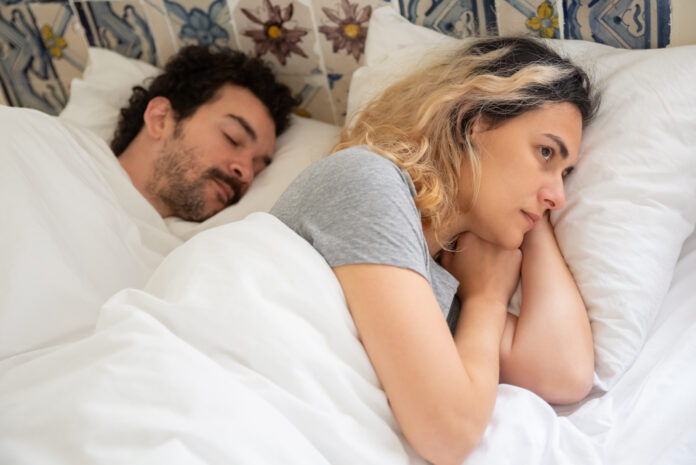Millions of people around the world have trouble sleeping at night due to various sleep disorders. One of the most common is sleep apnea. This condition causes you to stop breathing during your sleep, causing snoring and excessive fatigue, as well as more dangerous side effects. This article can tell you what you should know about this condition.
If you have moderate to severe sleep apnea, lose some weight. Being over-weight or obese can affect your breathing severely and can cause many health problems, including sleep apnea. Those individuals who lost at least twenty to twenty-five excess pounds saw a marked improvement in respiratory issues related to sleep apnea.
Skip sleeping pills if you are prone to bouts of sleep apnea. You may feel you need them to get to sleep, but they have a similar effect as alcohol on the body. They also have additional side effects besides the obvious ones. Stay away if you want to lessen your sleep apnea symptoms.
If you suffer from sleep apnea, it is vital to avoid consuming alcohol before bedtime. Alcohol acts as a sedative, therefore, it will naturally slow down your breathing. In addition, it will relax all the muscles in your body, including those in your throat that help to keep your airway open.
If you have just been diagnosed with sleep apnea and prescribed a CPAP, join a CPAP support group. It can be quite difficult to get used to sleeping with a mask on your face every night. Sitting in a room full of other people going through the same thing can be very empowering. You can learn from others who have had the same issues you are having and made adjustments to make it work.
Take the steps to find out if you actually have sleep apnea. Those who snore don’t necessarily have the disorder. If you have a sleeping partner, ask them questions about your actions during sleep. Do you stop breathing and gasp for air? That is a sure sign of sleep apnea.
Being overweight is a common cause of sleep apnea. If you suffer from this condition, losing weight can help you find relief. Talk to your doctor to find some safe and effective ways of dropping a few pounds. Doing so will also benefit you in many other ways as well.
Sleep apnea patients should not sleep on their backs. A common sleeping position for most people suffering from sleep apnea is on their backs. As a result, it’s easy for airways to get blocked. Wedge a pillow in place to keep your body resting on your side while sleeping.
Play a woodwind instrument. The music is enjoyable and helps to strengthen the muscles that you use to control your breathing. Toning the throat and neck muscles will give you more control over your sleep apnea.
Don’t drink alcohol, especially at night. The reason most people drink alcohol is to relax, but it also causes the muscles that control your airways to relax as well. When you go to sleep with ultra-relaxed airway muscles, it can make your sleep apnea symptoms worse. Do your body and your wallet a favor and cut out the booze.
Getting fitted for a mouth guard may help reduce your sleep apnea if you have an overbite, a small size jaw or a recessed chin. The position of your jawbone can actually block your airways when you have these problems. Using a mouth guard will help correct this issue, and can reduce the symptoms that you are struggling with.
If you are dealing with effects of sleep apnea, one solution is to perform throat exercises, which can help lessen the symptoms. The goal of these exercises is to prevent the throat from collapsing by strengthening the muscles supporting it. One example would be pressing your entire tongue against the top of your mouth, holding it there for multiple minutes and then letting go. Do this exercise once each day.
If you suspect that you have sleep apnea, talk to your doctor about undergoing a sleep study. During the course of the study, you will be hooked to monitors while you sleep. These monitors will tell doctors about the levels of oxygen in your blood, the states of sleep you enter, and whether or not your breathing is inhibited while you sleep.
Don’t take sleeping pills. You may feel like the answer to your sleep problems would be a pill to help you sleep, but it’s not! Sedatives and other sleep aids cause your muscles, including your throat muscles, to relax. Relaxed throat muscles are even harder to control while sleeping and are a danger to those who suffer from sleep apnea.
If you suffer from sleep apnea avoid any sort of opiate at all costs. Most opiates are used to treat pain, but the use of opiates in even mild sufferers of sleep apnea can possibly be life threatening. Though sleep is important, your life is obviously much more important, so avoid opiates.
Avoid sleeping pills and cold medicines if you suffer with sleep apnea. Taking anything that makes you drowsy will also relax the muscles of the airway passage and this can cause blockages and interruptions. Try getting into a solid routine that will prepare your mind and body for sleep instead.
Surgery may be your answer. If you have tried the at-home treatments with no success, surgery may be required to cure your sleep apnea. If your apnea is caused by severe misalignment of your jaw, you may require surgery to correct your alignment, thus enlarging your airway and curing the sleep apnea.
Knowing that you have a problem is the first step to finding a solution. If you snore, have trouble sleeping, or feel tired all the time, you may be suffering from sleep apnea. Talk to your doctor right away if you are concerned about these problems, and they can help you find the treatment you need.



